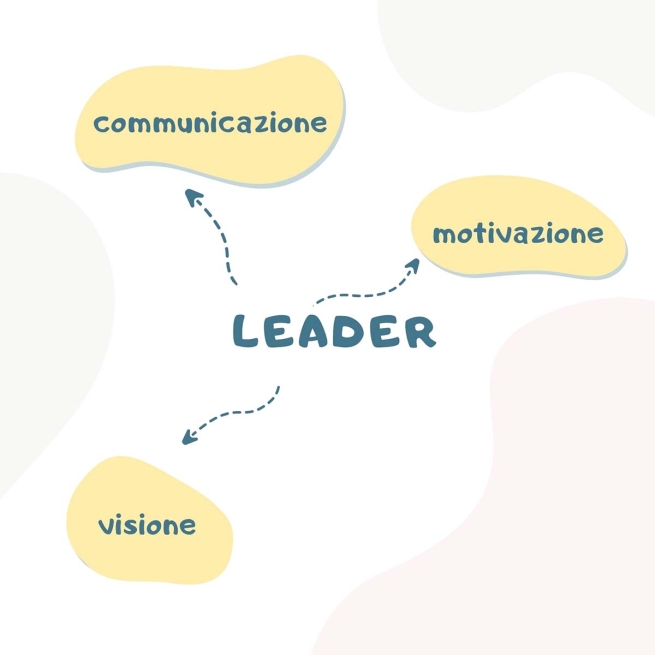Ability to motivate
'The goal of many leaders is to make people think the best of them. The goal of a great leader is to make people think better of themselves,' are the words of Professor Carla Northcutt. In reality, this translates into an essential ability to motivate colleagues to cross further seemingly insurmountable boundaries head-on. A leader who focuses public opinion on himself or herself is often primarily concerned with his or her positive image, which can result in a narcissistic attitude rather than the ability to motivate others.
Similar words were uttered by Harry S. Truman, President of the United States: 'It is amazing how much one can achieve if one does not care about honours'. Concern for honours can be an enormous burden for a leader, who is often unaware of this fact. This aura around his or her person can create an invisible boundary, a nimbus of superiority and inaccessibility, which can cause people not to follow, but to feel rushed into their responsibilities.
Motivation usually means being able to stimulate the desire to achieve goals. In addition to positive reinforcement, skills such as active listening, realistic praise, encouragement for change, respect for employees, constructive criticism, transparency in action and communication, challenge, control of emotions, a sense of security in decision-making and sense of action, help with competence development, appropriate remuneration, clear communication, empathy, understanding of employees' motivations, inspiration and clear delegation are essential.
Communication skills
What colour are my personality and communication skills? This question refers to the four personality colours described by the psychiatrist Carl Jung and known today as the DISC model. Thomas Erikson develops this topic in great depth in his work, describing the impact of colour differences on our communication and relationships with the environment. According to the author, we distinguish four types of behaviour and communication modes: red, yellow, green and blue.
Red people are people with leadership qualities, extroverted, assertive, ambitious, independent, strong-willed, task-oriented, results-oriented, dominant and quick to work. Yellow people are enthusiastic, enterprising, optimistic, good listeners, relationship-oriented, extroverted, creative and satisfied with life. Green people are introverted, relationship-oriented, friendly, avoid conflict, balanced, patient, calm, have difficulty making decisions and resolving conflicts, are stable, reluctant to change. Blues are people with an introverted personality, curious, logical thinkers, very thorough, detailed and systematic in their work, even perfectionists, with an analytical mind.
Erikson explains that most people are a combination of different colours: about 5 per cent of the population is single-coloured, 8 per cent two-coloured and the rest are personalities with three colours within them. Communication skills can and must be developed. Regardless of the communication pattern, it is worth studying and searching for answers to help you communicate correctly and understand the ways in which others communicate. An effective leader understands that people communicate in different ways and is well aware of his or her own way of communicating, especially when directing the work of others.
Having a vision
A leader has a clear vision of the institution and the group of people he or she leads. Moreover, he or she is characterised by the courage to make sometimes risky and uncertain decisions. Sun Tzu, in his advice in The Art of War, said that 'A commander without courage cannot overcome difficulties or realise great plans'. A true leader is a man with a vision, who knows where he is heading and shares his vision with passion and enthusiasm.
Realising one's vision requires patience. "The more power you have, the more patience you must have," said Seneca the Younger. Having a vision means having the courage to face the problems that arise every day, rather than putting them off, hoping for a spontaneous solution. ‘Most people spend more time and energy going around problems than in trying to solve them’, said Henry Ford.
A leader must not only have a clear picture of the organisation's or project's goals, but also the ability to communicate these goals in a way that inspires his or her colleagues. His vision provides direction, but also builds commitment and motivation within the team. By inspiring others to act, the leader becomes a reference point for the entire organisation, setting clear standards and expectations. Finally, it is important to remember the words of John C. Maxwell: ‘People quit bosses not companies’. This underlines the importance of the leader's role in shaping the working atmosphere and relationships within the organisation.
“We invite you to the Communication Conference to be held from 1 to 7 August 2024, in Rome” is the exhortation coming from the Sector for Social Communication.
Ahead of the conference, the Facebook page and Instagram profile of “Shaping Tomorrow” are already active.
https://www.infoans.org/en/sections/news/item/20795-rmg-shaping-tomorrow-leader#sigProId78bd3677bd



